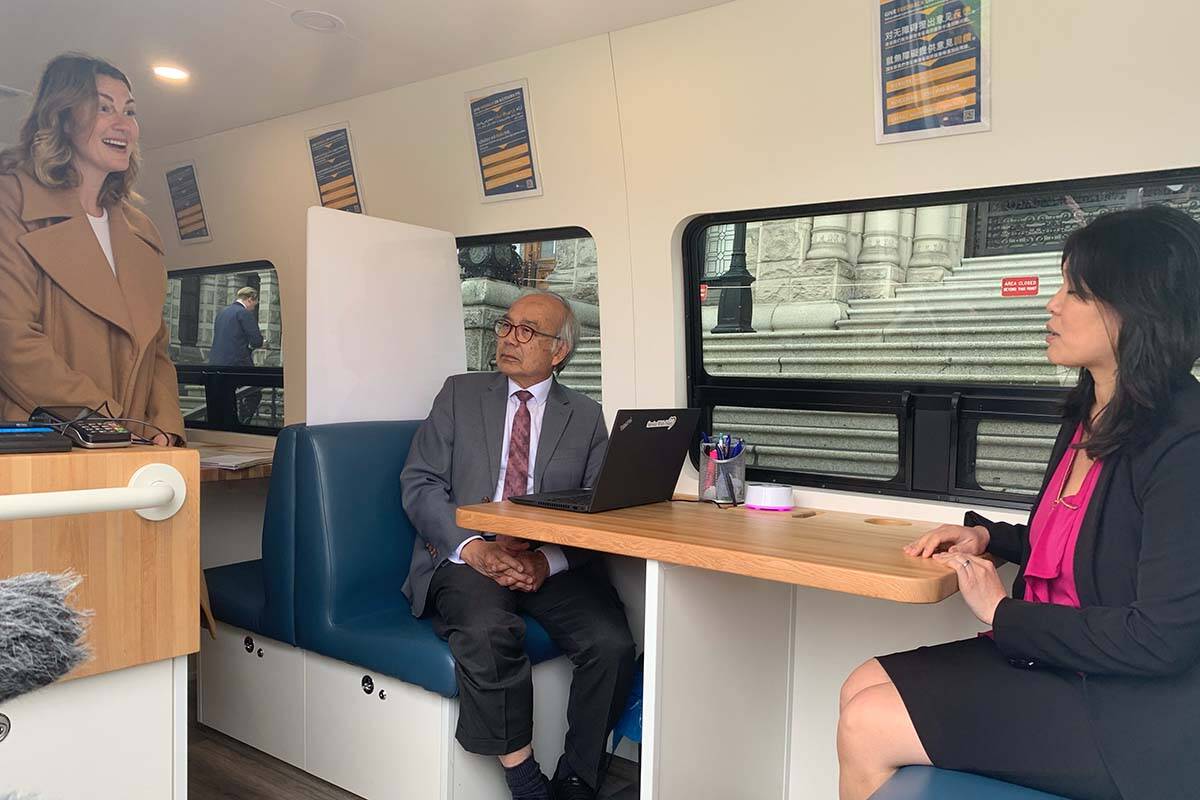A van offering 300 different government services, including the renewal of various licences, promises to benefit rural and remote communities during emergencies and beyond.
But it may take some time until the service expands beyond its singular vehicle.
Citizens Services Minister George Chow and Emergency Management Minister Bowinn Ma toured the van while it stood outside the legislature Thursday afternoon (April 25) with a handful of government staffers and reporters taking up the offer to renew their driver’s licences.
The van officially hit the road mid-February 2024 following trials in late 2023. Stops along the trial included Bella Bella on B.C.’s Central Coast with the van currently touring communities on Vancouver Island.
Ma said the van and the larger project of mobile service delivery reflects lessons from last year’s wildfire season.
“One of the lessons learnt that we gathered through feedback from communities is that challenge…of delivering effective emergency support services to people on the ground,” she said. “You have a lot of evacuees who will leave their homes without proper identification, without documentation. So how do we support those people on the fly?”
RELATED: Chetwynd evacuation order lifted even as ‘extreme drought’ feeds wildfire risk
Enter the German-made van.
“It’s able to provide WiFi and (staff) are able to provide on-the-ground in person Service BC support, where people need them in the communities, when they are needed,” Ma said.
Looking at the technical details, the van comes with two-way radio, GPS satellite-enabled phone and seasonal emergency supplies. LTE and satellite-based networks ensure connectivity and the van can serve up to two clients at a time. Its design also offers privacy.
Chow said use of the van is not just restricted to emergencies.
Six weeks ago, it helped a Vancouver church get identification for 100 recently arrived Ukrainian refugees, he said.
Chow also predicts that the van will deliver services to B.C.’s more remote communities, especially Indigenous communities.
The van will be available this summer, Chow said, but could not give a definitive answer how many more might be available in the future.
“This (vehicle) is a prototype, so we are evaluating effectiveness,” he said. “Of course, it’s very effective, so we will have to look at in the future … and I think we will have that decision soon.”
Total cost of the project is $675,000 with funding coming through a fund part of government’s telecommunications deal with Telus. Government’s share of the cost is $57,000 for the lease of the van.

